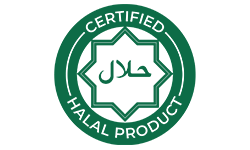An antioxidant is a molecule that is capable of neutralizing free radicals, which are highly reactive molecules that can damage cells and contribute to the development of undesirable outcomes.
Free radicals are produced naturally in the body through normal metabolic processes, but they can also be generated by environmental factors such as pollution, ultraviolet radiation, and cigarette smoke. They can damage important cellular components, such as DNA, proteins, and lipids, and when this damage accumulates over time, it can contribute to the development of lower health.
Antioxidants work by neutralizing free radicals by providing them with electrons, which helps to stabilize the free radicals and prevent them from causing further damage. This neutralization process is known as “redox reactions” where the antioxidant acts as a reductant, giving away electrons to the oxidant (free radical) and thus neutralizing it.
There are many different types of antioxidants found in nature, including vitamins (such as vitamin C and vitamin E), minerals (such as selenium and zinc), and phytochemicals (such as carotenoids and flavonoids) that can be found in fruits, vegetables, nuts, and other plant-based foods. Some antioxidants can be obtained through supplements, however, it is always recommended to consult with a health professional before taking supplements or making any changes to your diet.
How does Vitamin C Neutralize Free Radicals?
The mechanism by which vitamin C prevents oxidative stress is through its antioxidant activity. Vitamin C, also known as ascorbic acid, is a powerful antioxidant that neutralizes free radicals and helps to protect cells from damage caused by oxidative stress.
Vitamin C works by donating electrons to neutralize free radicals, which are highly reactive molecules that can damage cells. In this way, vitamin C acts as a pro-oxidant and it can neutralize a wide range of free radicals such as hydroxyl radicals and superoxide anions.
Additionally, vitamin C helps to regenerate other antioxidants in the body, such as vitamin E, which helps to further protect cells from oxidative stress.
what about vitamin d?
Vitamin D has been shown to have antioxidant properties and plays a role in the prevention of oxidative stress. However, the mechanism by which it does this is not fully understood.
Some studies suggest that vitamin D has the ability to increase the production of antioxidant enzymes such as catalase and superoxide dismutase, which can help to neutralize free radicals and protect cells from damage caused by oxidative stress.
Additionally, vitamin D also plays a role in regulating the immune system, which can help to protect the body against oxidative stress by reducing inflammation and fighting off harmful pathogens. It also upregulates the genes that are responsible for detoxifying the body and removing harmful toxins.
It is worth noting that more research is needed to fully understand the mechanisms by which vitamin D prevents oxidative stress. However, it is known that vitamin D is important for overall health and well-being and it is recommended that individuals maintain adequate levels of vitamin D through sunlight exposure, diet, and supplements.
Vitamin E acts as an antioxidant, which means it helps to neutralize harmful compounds called free radicals that can damage cells and lead to oxidative stress.
Vitamin E is a lipid-soluble antioxidant, which means it can effectively neutralize free radicals in cell membranes and other lipids-rich areas of the body, such as in the cell membrane, the mitochondria and the endoplasmic reticulum. Vitamin E works by donating an electron to the free radical, which neutralizes it and prevents it from causing further damage to cells.
Vitamin E also helps to regenerate other antioxidants in the body, such as Vitamin C, which helps to further protect cells from oxidative stress.







